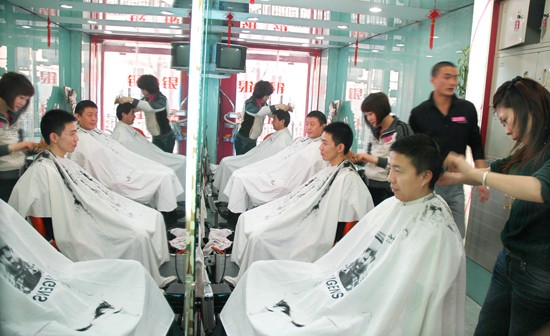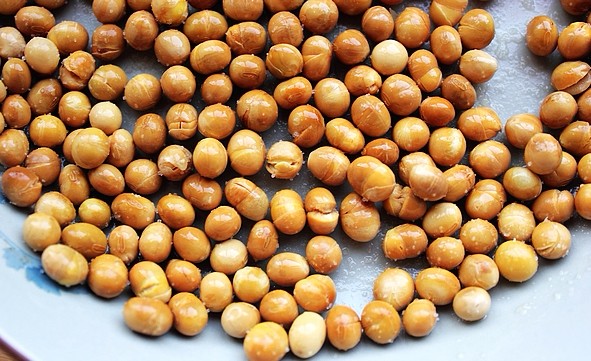Dragon Heads-raising Day (Longtaitou Festival)
Introduction

Date of The Dragon Heads-raising Day
| Year | Date of Dragon Heads-raising Day |
|---|---|
| 2025 | March 1st |
| 2026 | March 20th |
| 2027 | March 9th |
| 2028 | February 26th |
Traditions and Customs

The most popular custom on the Dragon Heads-raising Day is cutting hair. Dragon is highly esteemed for its dignity and power for good. It is thought to be auspicious to cut hair on the Dragon Heads-raising Day. Luck and opportunities will always knock you in the year. So, on that day, barbershops' businesses are prospering and full of customers. According to the Chinese tradition, it's bad luck to cut hair during the first lunar month. As the Chinese saying goes ‘If you cut your hair in the first lunar month, your uncle will die.' So, people usually cut hair before the first lunar month and wait to the Dragon Heads-raising Day to cut again.
The most common foods for celebrating the festival are popcorns, pancakes, noodles, dumplings, fired soy beans and pig's head. People in different areas have different traditions about the food on the day. In Beijing, people eat Lvdagunr (Glutinous Rice Rolls with Sweet Bean Flour) and spring pancakes on the day.

In Shanxi, people like to eat fried dough twists and pancakes. In Shandong, fried soy beans, noodles and dumplings are the festival food. In Fuzhou, the salted porridge made of glutinous rice, celery, scallion, garlic, fry dried shrimps and shredded meat is eaten.
To be auspicious, what people eat on the Dragon Heads-raising Day is usually renamed after parts of the dragon. Eating dumplings is called eating "dragon's ears," spring pancakes are called "dragon's scales," rice is called "dragon's son", wontons are "dragon's eyes", pancake is the "dragon scale bing", noodles are "dragon beard noodles", and fried dough twists are "dragon's bones", etc. These show people's hope to be blessed with favorable weather and bumper grain harvest by the dragon.
In some places people go to suburb for relaxing on the day. Also some people worship to the dragon or earth god with the hope that there would be rains helping the agriculture.
In some rural areas, the day is also called the daughters' day. On the day, the married daughters would come home and stay for some days to accompany their parents. Later, they will come back to help with crops planting.
Taboos to Be Avoided
Legend
To save the dragon king, people tried to find the gold beans everywhere. The next year, on the second day of the second lunar month, when people were drying the corn seeds under the sun, they found the corn seeds looked like gold beans. They heated them and made popcorn to let the golden beans bloom. After knowing the people tried to save him, the dragon king raised its head and shouted to the Jade Emperor to see the golden beans bloom in families. After seeing this, the Jade Emperor was allowed to return to the heavenly palace and in charge of making wind and rain agian. From then on, there is the custom of eating popcorns (or fried soy beans in some places) on the 2nd day of the 2nd lunar month.
More Traditional Chinese Festivals:
Chinese Spring Festival Laba Festival Lantern Festival Qingming Festival Dragon Boat Festival Ghost Festival The Double Ninth Festival Mid-Autumn Festival Double Seventh Festival Winter Solstice
Chinese Calendar
| Su | Mo | Tu | We | Th | Fr | Sa |
|---|---|---|---|---|---|---|
| 29初五/5 | 30初六/6 | 1初七/7 | 2初八/8 | 3初九/9 | 4初十/10 | 5十壹/11 |
| 6十二/12 | 7十三/13 | 8十四/14 | 9十五/15 | 10十六/16 | 11十七/17 | 12十八/18 |
| 13十九/19 | 14二十/20 | 15廿壹/21 | 16廿二/22 | 17廿三/23 | 18廿四/24 | 19廿五/25 |
| 20廿六/26 | 21廿七/27 | 22廿八/28 | 23廿九/29 | 24三十/30 | 六月 (Jun) 25初壹/1 | 26初二/2 |
| 27初三/3 | 28初四/4 | 29初五/5 | 30初六/6 | 31初七/7 | 1初八/8 | 2初九/9 |
{{week}}. {{month}} {{day}}, {{year}}
Lunar Date
{{lmonth}} {{lday}}, {{syear}} ({{zodiac}}) Year ({{lyear}}){{sday}} Day, {{smonth}} Month
Auspicious
-
{{#luckly}}
- {{.}} {{/luckly}}
Inauspicious
-
{{#unluckly}}
- {{.}} {{/unluckly}}
Auspicious Times
-
{{#luckyTime}}
- {{.}} {{/luckyTime}}
